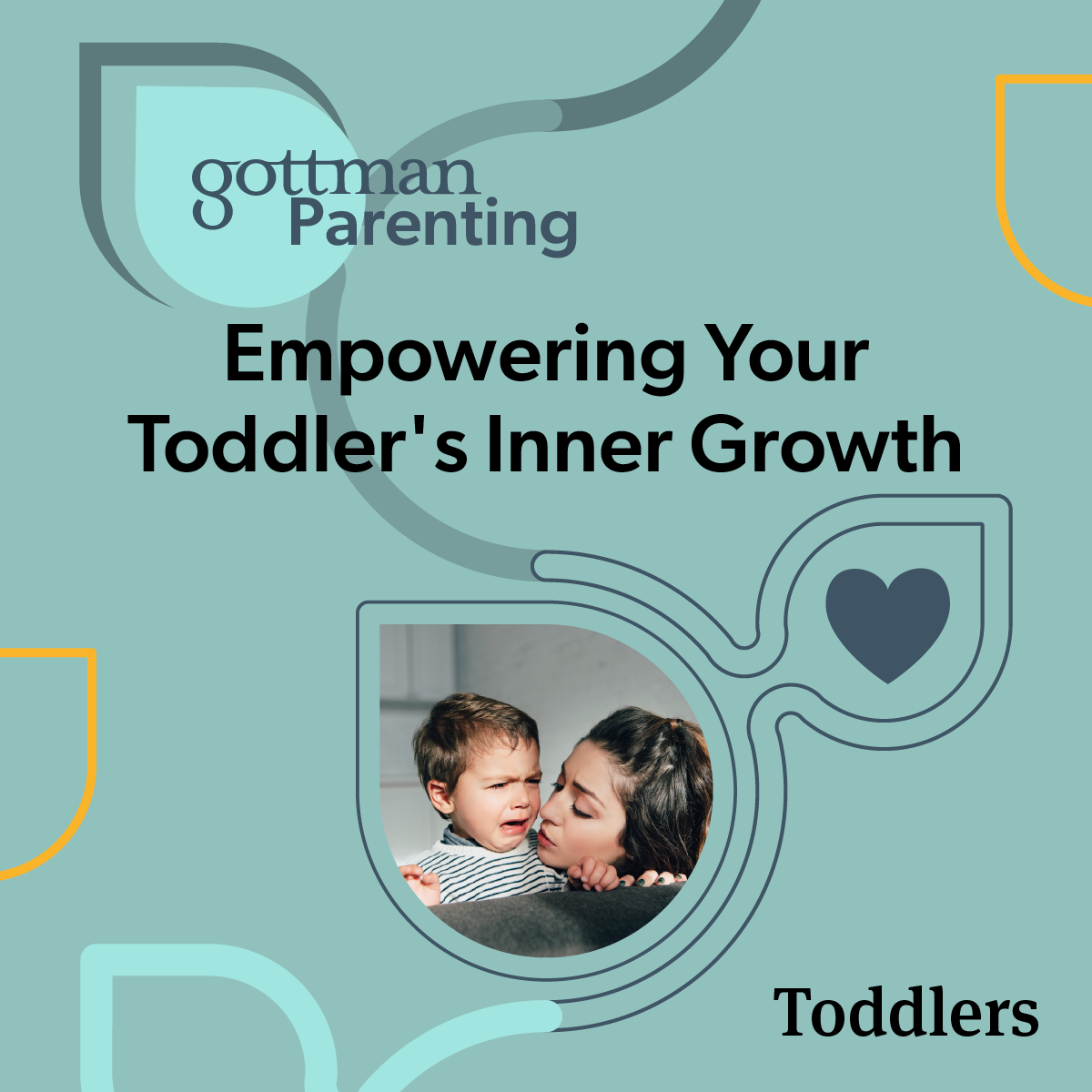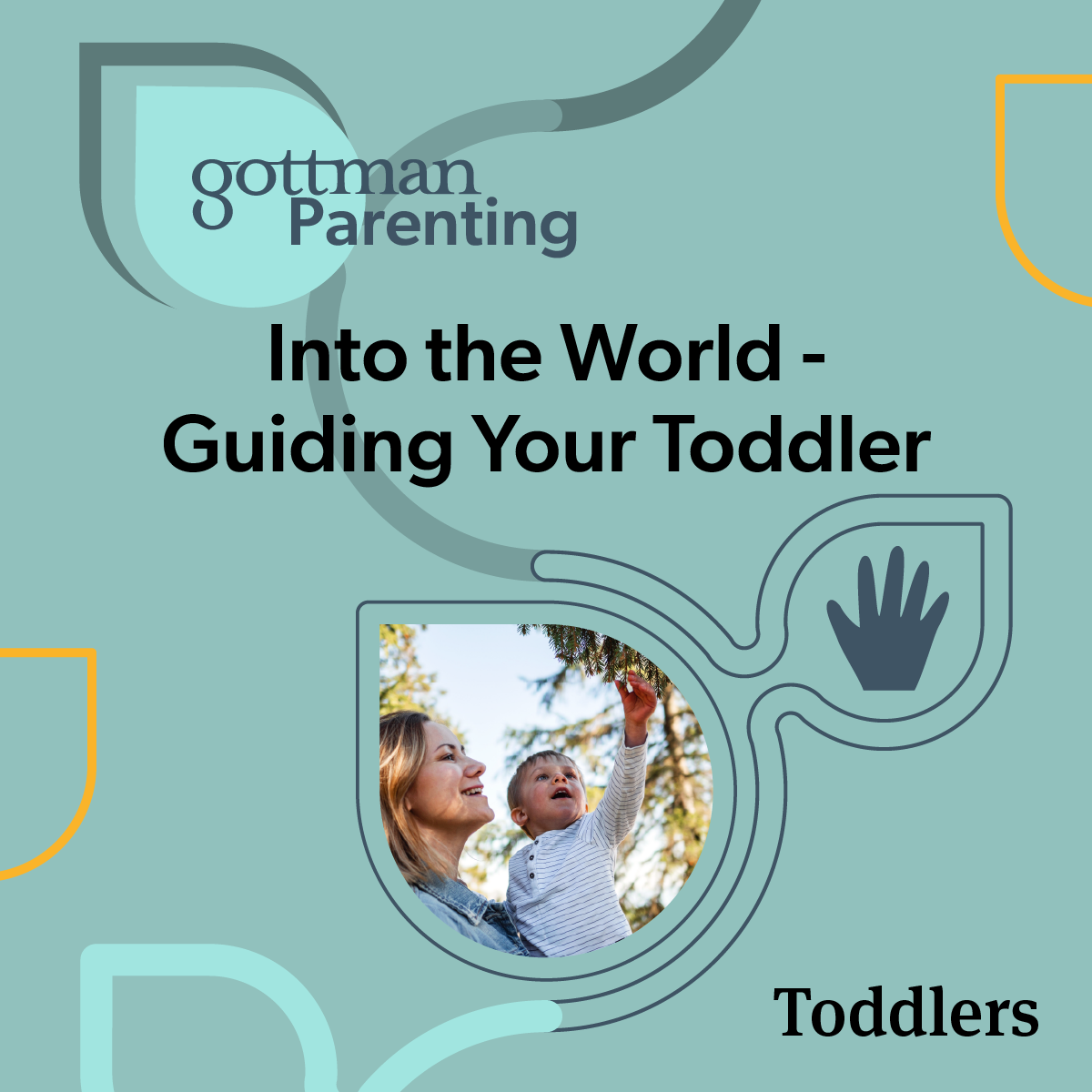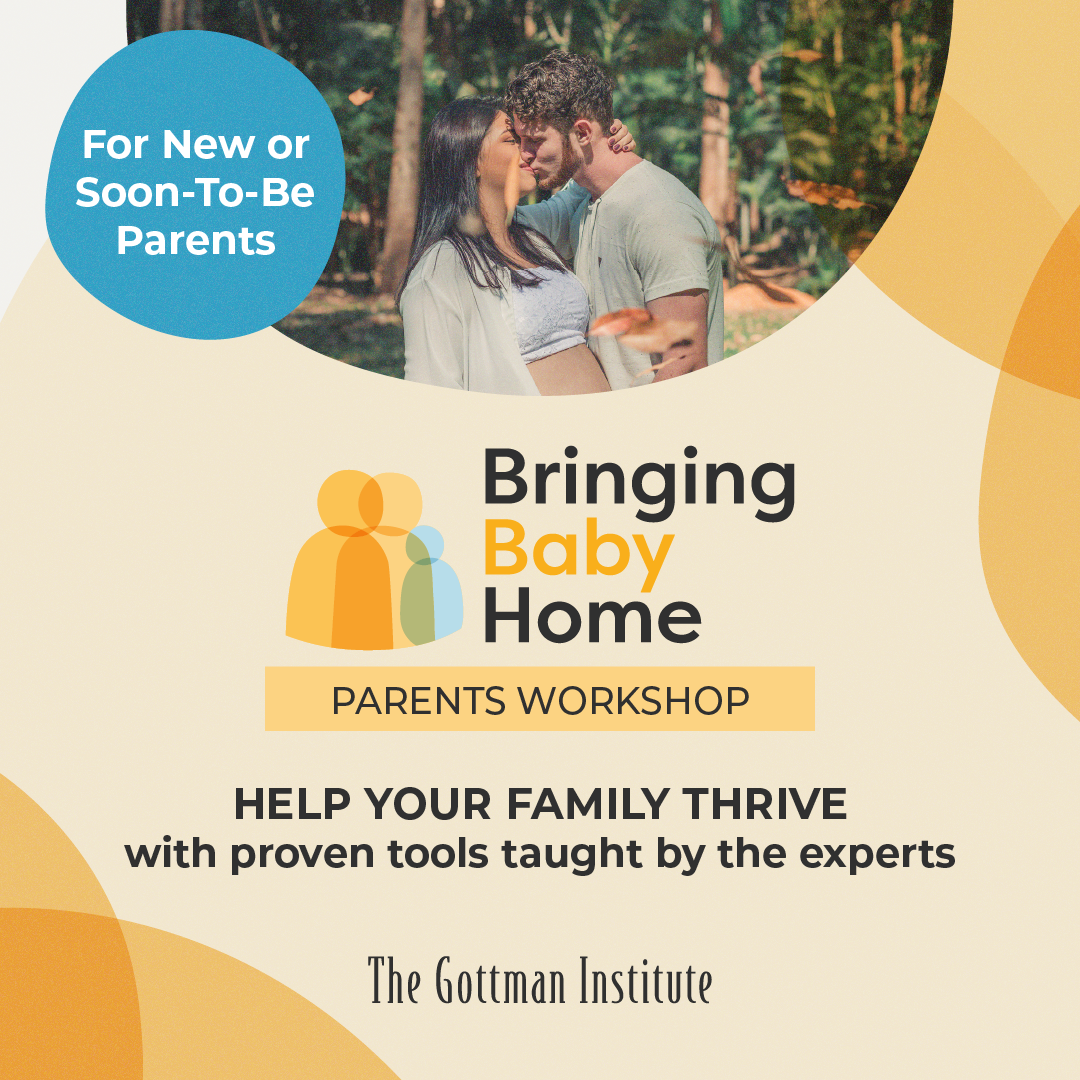The mountain of parenting studies piled up by researchers over the years created the idea that any conflict between you and your partner must be entirely hidden from your kids. Imagine putting such an idea into practice. It would be totally impossible. Luckily, this idea is not only completely impractical but also utterly wrong.
Conflict is a natural part of any intimate relationship. Dr. John Gottman’s research on this subject may come as a welcome relief. He discovered that as children grow up, their ability to cope with emotions is strengthened not by conflict avoidance between their parents, but rather by the example that you and your partner set in your healthy acknowledgment of negative emotions. The efforts that you make to work through inevitable differences with your partner in a loving and accepting way accomplish two things: strengthening your relationship with one another and with your child. In the most formative years of your kids’ lives, exposing them to emotionally intelligent styles of conflict resolution is scientifically proven to do wonders for their future success. Once formed, it seems that the habits your children pick up stick. It’s like learning to ride a bike through an argument, which can be a pretty useful skill.
Remarkably, this phenomenon also works in the opposite direction. The research on the effects of healthy parenting shows that an awareness of your own emotions and those of your children dramatically increases a couple’s connection. Feelings of companionship, affection, fondness, admiration, and general happiness about their marriage were shown to increase for couples who taught their children to work out areas of conflict in a healthy way. These couples also showed less of a tendency to treat each other with belligerence, contempt, stonewalling, and other chaos-inducing behaviors. Chaos is to be avoided at all times! There is always enough chaos.
If you and your partner become Emotion Coaches, Dr. John Gottman’s term for couples who engage in healthy methods of problem-solving, you stand to benefit enormously both in your own relationship and in your relationships with your children. Watching parents treat each other with respect and understanding teaches children essential life skills applicable constantly throughout their lives. From the sandbox to the classroom, they will know crucial skills in dealing with their own emotions and those of others in a healthy way.
Cultivate an empathetic, validating, and affectionate environment in your home, and increase not only your children’s trust and awareness of their emotions but the connection between you and your mate. For further information on Emotion Coaching and emotional intelligence, read “Raising an Emotionally Intelligent Child” and also be sure to check out our YouTube channel:
Want research-backed tips on parenting delivered straight to your inbox?
The Gottman Parenting newsletter is a comprehensive, inclusive resource for parents of children in all ages and stages. Join us as we tackle modern parenting challenges, explore the latest parenting research, and more.









